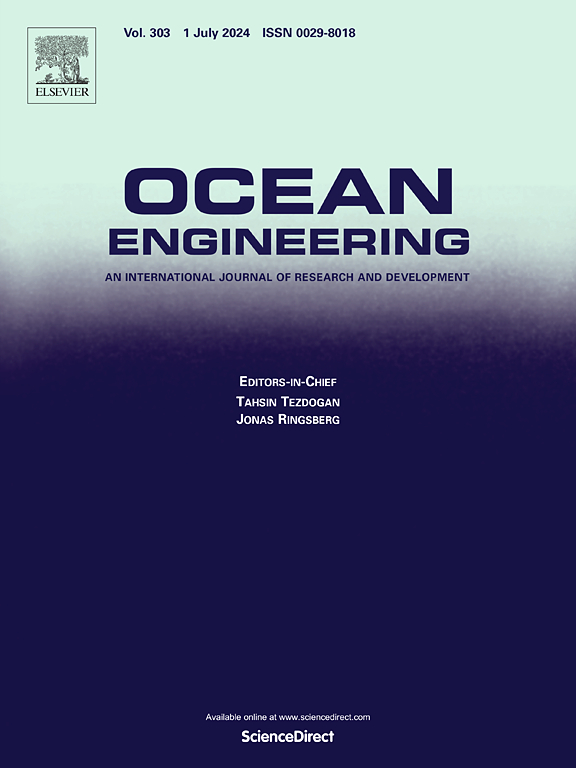Numerical study of regular wave dynamics for optimizing coral reef restoration
IF 4.6
2区 工程技术
Q1 ENGINEERING, CIVIL
引用次数: 0
Abstract
Understanding wave dynamics is pivotal to the success of coral transplantation within reef restoration initiatives. Inappropriately transplant conditions can negatively impact coral growth, and may even lead to their demise. Given the inherently slow growth of corals, it is challenging to empirically or experimentally determine the optimal hydrological environment conditions involved in reef restoration. This study introduces a three-dimensional numerical wave flume to precisely simulate the complex interactions of artificial coral reefs with wave forces at various developmental stages. This study reveals that the efficacy of the wave-attenuating effect is heavily influenced by factors such as water depth and reef porosity. Shallow water depths notably enhance wave attenuation, stimulating coral growth by promoting dynamic water mixing. Coral reefs with porosity above 0.75 exhibit changes in transmission coefficient but have minor effects on coral-wave interactions. The optimal water depth for a successful transplant should range between 1.5 and 2.5 times the height of the reef platform. An optimal distribution of corals across the shelf, occupying 25–30% of the total volume, is crucial for effective transplantation. These findings contribute not only to the rejuvenation of coral reef ecosystems but also augment the protective attributes of corals in coastal regions.
优化珊瑚礁修复的规则波动态数值研究
了解波浪动力学是珊瑚礁恢复计划中珊瑚移植成功的关键。不适当的移植条件会对珊瑚的生长产生负面影响,甚至可能导致其死亡。鉴于珊瑚本身生长缓慢,通过经验或实验确定珊瑚礁修复所需的最佳水文环境条件具有挑战性。本研究引入了三维数值波浪水槽,以精确模拟人工珊瑚礁在不同发育阶段与波浪力的复杂相互作用。研究发现,波浪减弱效果在很大程度上受水深和珊瑚礁孔隙率等因素的影响。浅水深度显著增强了波浪衰减效果,通过促进动态水混合来刺激珊瑚生长。孔隙率超过 0.75 的珊瑚礁的透射系数会发生变化,但对珊瑚与海浪的相互作用影响较小。成功移植的最佳水深应在珊瑚礁平台高度的 1.5 至 2.5 倍之间。珊瑚在陆架上的最佳分布(占总体积的 25-30%)对于有效移植至关重要。这些发现不仅有助于珊瑚礁生态系统的恢复,还能增强珊瑚在沿海地区的保护特性。
本文章由计算机程序翻译,如有差异,请以英文原文为准。
求助全文
约1分钟内获得全文
求助全文
来源期刊

Ocean Engineering
工程技术-工程:大洋
CiteScore
7.30
自引率
34.00%
发文量
2379
审稿时长
8.1 months
期刊介绍:
Ocean Engineering provides a medium for the publication of original research and development work in the field of ocean engineering. Ocean Engineering seeks papers in the following topics.
 求助内容:
求助内容: 应助结果提醒方式:
应助结果提醒方式:


